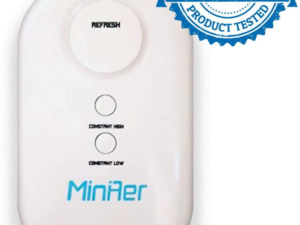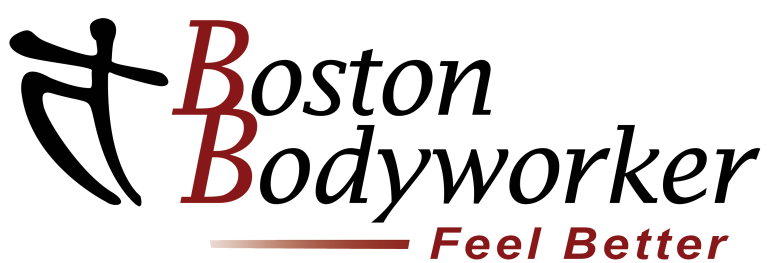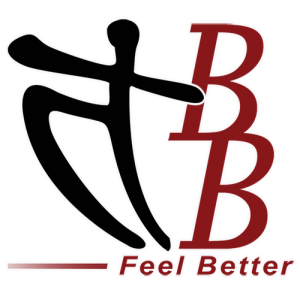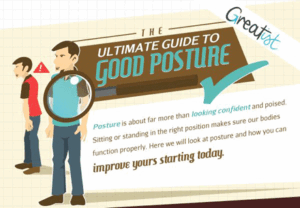The Power of Suggestion
We have all heard the term “Placebo”. A placebo is a treatment that decreases symptoms only because the client imagines a benefit, not because the treatment itself has any effect. For example, a sugar pill can be a placebo that will improve a headache only if the person taking the pill has an expectation that it will provide benefit. The placebo effect is the physiological process by which expectations about a treatment cause changes in the brain that initiate an improvement in symptoms.
Well, the contrast to this is a “nocebo”. A nocebo causes negative changes in symptoms (e.g. more pain and reduced function) when there is an expectation that an otherwise harmless stimulus will cause harm. Consider the person who thinks that bending and touching their toes will cause them pain, because the last time they did this, it did. The chances of them experiencing discomfort are pretty high. Over time, they avoid this movement and essentially create the harm that they anticipated because they have not moved properly due to this nocebo effect in thinking. Think self-fulfilling prophecy.
Many think of placebo as a mind-body connection that is a mysterious process without explanation. But in fact, we have connections between abstract thoughts and the body all the time. However, we never logically conclude this in real time. If I think there is danger in a dark alley I’m approaching, than my heart begins to beat faster. If I am nervous before a presentation, my hands begin to sweat. These are all reactions to our own thoughts. It’s not magic. There is a connection.
Well, what if the effect of your care is a “nocebo”? The opposite of a placebo. A nocebo is a detrimental effect on health produced by psychological or psychosomatic factors such as negative expectations of treatment or prognosis. This type of effect actually occurs much more often than the placebo effect. A nocebo effect is often innocently injected into our daily lives or even into our rehabilitation models. As an example, if you go for an MRI and the doctor tells you that they see a bulging disc, you may start to feel more pain, even if the pain you feel has nothing to do with the MRI findings. However, what if they continued to tell you that there is poor correlation between back pain and MRI findings? This can change the way you take in that information. If your therapist tells you that your hamstrings are tight, you may start to shorten your stride or be concerned about the first minor twinge you feel in the hamstring the next time you think you are about to pull something.
Ultimately, what we are learning more and more is that how we think about an injury and how we are spoken to by professionals who we look to for comfort, can have as big of an impact on recovery as the treatment approaches themselves. How many of us have walked into a doctor’s office and seen a model of a spine with the disc sitting next to it? This is what people think happens to “slipped discs”. It’s not. Not even close. But that imagery has a huge impact on how someone who has a slipped disc, can feel. As a matter of fact, many you reading this right now may have a slipped disc, but not even be aware of it. Again, follow the science. Correlation does not equal causation. We must all, professionals and patients, reshape the words we use to express what we are experiencing. This goes a long way in moving past problems related to pain and trauma in our lives.
Ready to #feelbetter?
You're just a click away from a wicked good massage!
-

60 Minute Massage Gift Card
$170.00 Add to cart -

90 Minute Massage Gift Card
$255.00 Add to cart -

Mini Aer Small Room Air Purifier
$149.00 Add to cart -
Sale!

Thera-Pearl Sports Pack/Hot Cold
Original price was: $14.99.$12.99Current price is: $12.99. Add to cart -

3 Somadome Sessions Gift Card
$135.00 Add to cart -

TheraBand CLX Connective Loop
$14.99 Select options -

6 Somadome Sessions Gift Card
$270.00 Add to cart -
Sale!

Biofreeze
Original price was: $14.99.$12.99Current price is: $12.99. Add to cart
Passion Mountain
I was at an event recently and was asked by somebody how I could STILL be so passionate for what I do. He said, “What I mean is that you talk about what you do with the passion of child flipping through a new pack of baseball cards. I wish I was that passionate about…
Read MoreFish You Should Scale Back On
New Englander’s love their seafood and we deepen our love affair every summer when our favorite crustaceans, ‘lobstah’ is a plentiful. But what is the best seafood for us and what are the ones that we should be staying away from regardless of how yummy they may be? Monterey Bay Aquarium has combined data from…
Read MoreSports are a Great Metaphor
It’s no secret that my life has always revolved around athletics. From my early days playing pop warner football, through my college years of lacrosse and on into the various community leagues since, being part of a team has always been where I feel most comfortable. What I enjoy most about being part of a…
Read MoreWhat is an Expert?
“An expert is someone widely recognized as a reliable source of technique or skill whose faculty for judging or deciding rightly, justly, or wisely is accorded authority and status by their peers or the public in a specific well-distinguished domain.” – Wikipedia This past month I flew to Atlanta to present a few classes in…
Read MoreThe Power of a Hug
Originally Posted 5/1/2014; following the 1 year anniversary of the Boston Marathon Bombings and our mission to rebound after these horrible attacks on our city. We helped orchestrate the ‘One Run for Boston’; a 3328.2 NON-STOP running relay from LA to Boston, raising over $500K for the victims and survivors of the events of 4/20/2013.…
Read MoreTips from the Table
Without fail, every marathon season, I am asked by my patients, what kind of advice I would offer up to them as they prepare to run the Boston marathon. I first admit that I have never (nor will ever) run a marathon, but given my unique insight of spending 1000’s of hours alone in a…
Read MoreShoulder Impingement
The glenohumeral joint is a highly complex articulation. It has the greatest range of motion of any joint in the body. However, its increased motion occurs at the expense of stability, requiring the soft tissues to play a more critical role in maintaining joint integrity. As a result of increased mechanical demands, numerous soft-tissue injuries…
Read MoreTrain, train, train. Train of fools.
In my seventeen years as a massage therapist, I am still amazed by some of the things I see in my office. Being situated 1/10th of a mile from the finish line of one of the most prestigious marathons in the world, the Boston Marathon, we see more than our fair share of runners coming…
Read MoreAchilles Tendon Disorder
Achilles Tendon Disorder Massage therapists see many clients with active lifestyles. Running, jumping, dancing, climbing, or any number of other activities can put serious stress on the Achilles tendon (AT). AT disorders also can contribute to biomechanical disorders in the foot and lower extremity. That is why it is important for the massage practitioner to…
Read More


